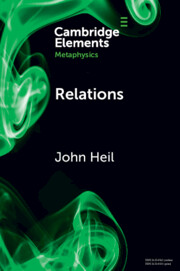Element contents
Relations
Published online by Cambridge University Press: 12 October 2021
Summary
- Type
- Element
- Information
- Series: Elements in MetaphysicsOnline ISBN: 9781108939904Publisher: Cambridge University PressPrint publication: 11 November 2021
References
- 4
- Cited by



